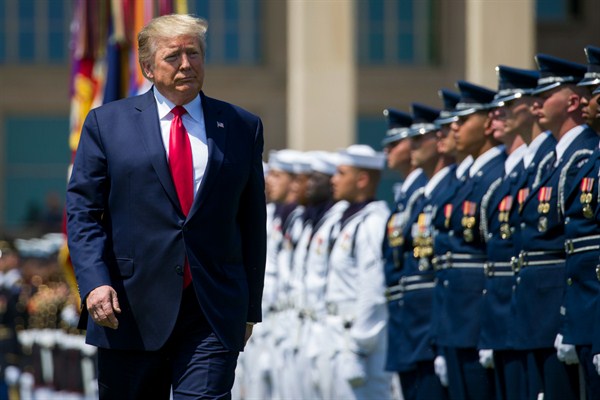Depending on which headlines you scanned over your morning coffee last week, World War III seemed to be on the verge of breaking out, either in the skies over the Sea of Japan or on the water in the Strait of Hormuz. Luckily, neither the South Korean air force’s muscular interception of a joint Russian-Chinese air patrol—including the firing of flares and warning shots—nor Iran’s seizure of a British oil tanker triggered the next conflagration. Still, all the sensational spin about end-time tripwires is a clear indicator of how a doomsday mindset is clouding our thinking about today’s multipolar world.
Some pundits debate whether or not the world is now in a new “G-Zero” era of increased conflict with few winners and no leaders. Others have made a parlor game out of guessing whether Kim Jong Un, Vladimir Putin or Xi Jinping will be first to escalate diplomatic and trade standoffs with the U.S. into a shooting war. Most seem to acknowledge that we have entered the “Second Nuclear Age,” in which the spread of nuclear weapons and cyber capabilities, combined with reassessments of Cold War-era strategic assumptions, has accelerated changes in the character of war, with alarming implications for deterrence. But agreement about the scope of the problem hasn’t led to consensus over how to update the way we think about what wonks call “crisis stability”—dynamics that allow for security standoffs to be deescalated without resort to all-out war.
The near-daily frisson of handwringing over proliferating security dilemmas suggests something is off lately in our reading of the geopolitical tea leaves. It’s not so much that we don’t know where the fault lines lie. Whether India versus Pakistan, Israel versus Iran, or the U.S. versus North Korea, China and Russia, there are a range of scenarios for potential escalation that we tend to take for granted.

